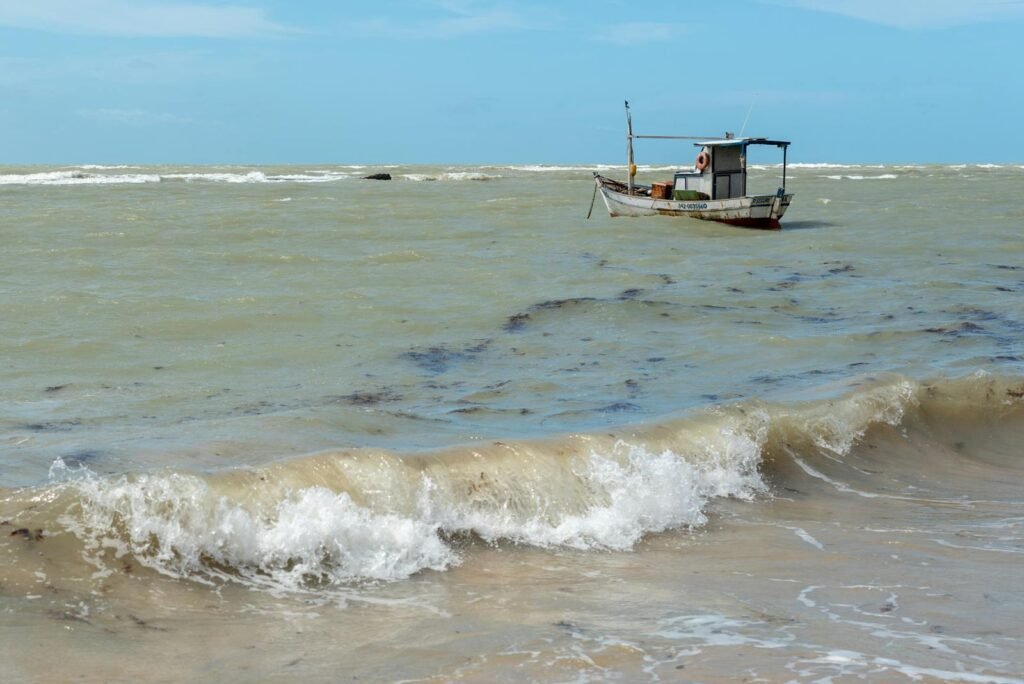
Washington, D.C. — The U.S. military has carried out a lethal airstrike on a suspected drug-smuggling boat in the Pacific Ocean, resulting in the deaths of two individuals on board, as confirmed by the Pentagon on Monday. This operation is notable as it is the first of its kind in the Pacific and the eighth overall since September, part of an escalating effort against maritime drug traffickers.
According to BBC reports, U.S. Defense Secretary Pete Hegseth stated that the vessel, a high-speed boat recognized by U.S. intelligence, was thought to be transporting drugs along a known trafficking route in international waters close to Colombia. Fortunately, no U.S. personnel were harmed during the operation.
Aerial footage released by the Pentagon captures a blue speedboat racing across the water before being hit by a U.S. missile.
“Narco-terrorists intending to bring poison to our shores will find no safe harbor anywhere in our hemisphere,” Hegseth wrote on X (formerly Twitter). “Just as Al Qaeda wages war on our homeland, these cartels are waging war on our border and our people.”
Hegseth added that there would be “no refuge or forgiveness — only justice.”
Background: Escalating Military Action Against Cartels
The operation is part of a broader effort launched by the Trump administration to target drug-trafficking organizations with military force, citing a recently leaked memo describing the U.S. as engaged in a “non-international armed conflict” with these groups.
As of now, at least 34 individuals have lost their lives in U.S. operations targeting suspected drug boats, primarily in the Caribbean, including a notable strike on a semi-submersible “narco-sub.” Two individuals who survived a prior attack were sent back to Colombia and Ecuador. One was freed due to insufficient evidence, while the other is still receiving medical care.
Approximately 10,000 U.S. military personnel have been stationed in the area, supported by naval and air resources. In spite of this vigorous initiative, officials have shared minimal public details regarding the identities of the deceased or their connections to particular cartels.
Rising Tensions With Colombia
This strike occurs against a backdrop of deteriorating relations between Washington and Bogotá. Over the weekend, President Donald Trump criticized Colombian President Gustavo Petro, labeling him an “illegal drug leader” and accusing his government of exacerbating drug production.
“We will no longer subsidize Colombia,” Trump declared, signaling an end to decades of U.S. aid to the South American nation, once seen as a key partner in the war on drugs.
Both Colombia and Ecuador — known for their vast Pacific coastlines — are recognized as key launch points for cocaine shipments heading to the U.S., which are usually routed through Central America and Mexico.
Although the majority of drug seizures take place in the Pacific, U.S. officials have recently shifted their attention to the Caribbean, where it is reported that trafficking activities are on the rise.
With military force now playing a crucial role in the U.S. counter-narcotics strategy, experts caution about the potential legal and geopolitical ramifications — particularly as issues of civilian casualties and wrongful detentions continue to be a concern.
As of now, the Pentagon has not disclosed the identities of the two individuals killed in this recent strike, nor have they confirmed any connection to a specific cartel.



